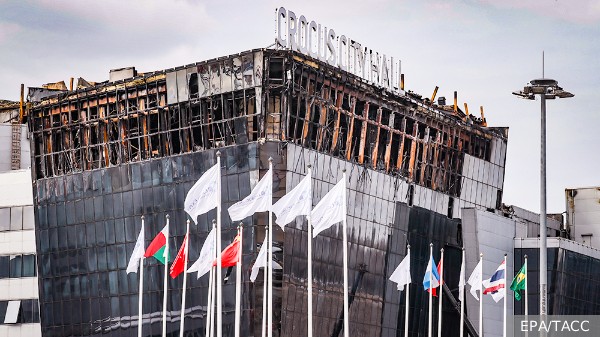
Nothing to do with Ukraine?,Nothing to do with Islam? Krokus City Hall Tragedy
Within the last a week, the investigation into the terrorist attack at Crocus City Hall has become an extensive international operation. Raids were carried out in Tajikistan and Turkey aimed at extremists who support the ISIS organization, which is banned in Russia. The Security forces in Central Asian countries are holding regular meetings. Europe has announced an increasing threat of new terrorist attacks, and France is considering cancelling the opening ceremony of the Paris Olympic Games. Investigators are examining international networks, scrutinising cryptocurrency payment flows and networks of coordinators from the Middle East. They are searching for field camps in Turkey and Syria where terrorists could be trained. Russia also insists that it has evidence of Ukraine's involvement in the terrorist attack, along with the corresponding funding channels.
The complex network of connections and relationships makes it challenging to identify the beneficiaries of the tragedy. Meanwhile, Western authorities are attempting to simplify the investigation by attributing it to Islamic terrorism and blaming Russian intelligence for failing to prevent the attack. Similarly, domestic authorities are also seeking simplistic solutions by focusing on regulating migration as the root cause of the problem.
At a higher level, formulating a response to the attack from Kyiv is a non-trivial task, but it is understandable. It is likely that Kyiv's involvement in ordering the terrorist attack will be proven. Therefore, a 'black swan' event has occurred, which could significantly alter the entire situation surrounding the Ukrainian conflict, both in terms of pacification and sharp escalation. The partnership of a country with terrorist groups and violent extremists harms Kyiv's reputation. This damages the relationship with Western partners who are already frustrated with Kyiv's stubbornness. The best course of action is to provide convincing evidence and pursue diplomatic solutions. This is concerning. However, there are some Western politicians who advocate for war and may try to justify further violence in Ukraine.
The memory of the victims of the terrorist attack at Crocus reminds us of a larger catastrophe that the civilized world is rapidly approaching. This catastrophe involves the erosion of boundaries, legal foundations, and biblical laws in the face of paramilitary clashes, violent conflicts, and international confrontation.
War is increasingly moving beyond the realm of regulated state structures and into the realm of hybrid conflicts that are not bound by any rules or morality. The monopoly on violence is being undermined, and private military companies and special units are gaining the ability to use force. Naval and aerial drones allow attackers to remain concealed. Ordinary civilians located thousands of kilometers away can be turned into living bombs and become biodrones, capable of carrying out terrible terrorist attacks. Today, it may be as simple as pouring green paint into a ballot box, but tomorrow it could be pressing the 'red button' at a nuclear power plant.
Large online terrorist organizations were the first to comprehend these new conditions for the spread of uncontrolled violence. Radical extremists, formed by US and British intelligence agencies to fight Soviet troops in Afghanistan and then used to create chaos in the Middle East, have long pursued ideological goals while receiving generous funding from specific sponsors.
These are the realities of a sprawling and conflicting world.
Unfortunately, Ukraine is gradually becoming similar to the 'caliphate' on Russia's borders. There is a large black market for weapons and crime, as well as terrorism and anti-Russian sentiment. As in the past, this spear pointed at Russia will eventually strike the Western 'Garden of Eden.' The recent Crocus terrorist attack highlighted this potential threat. Our partners must decide whether they are willing to learn from their mistakes.
